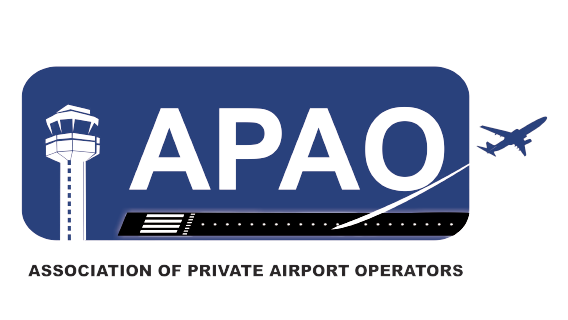Mumbai International Airport Limited (MIAL) is managed by Adani Airport Holding Limited (AAHL), a subsidiary of Adani Enterprises, the flagship company of the globally diversified Adani Group. MIAL is a Public-Private Partnership (PPP) venture between AAHL, which holds the majority stake, and the Airports Authority of India. With a strong understanding of modern-day mobility requirements, MIAL envisions itself as the #GatewayToGoodness with customer-centricity to every traveler being at its core. With the takeover of MIAL, Adani Group’s vision of reinventing airports as ecosystems that drive local economic development comes closer to actualisation as Mumbai International Airport becomes the nuclei with the potential to catalyse aviation-linked businesses. A ‘passenger first’ approach acts as the guiding force for MIAL, which combines state-of-the-art infrastructure with futuristic technology to ensure a world-class experience to millions of flyers, creating a lifestyle destination for communities and deliver sustainable value for the stakeholders.
Mumbai International Airport is one of India’s busiest airports, having recorded passenger traffic of 48 million in 2018-19, along with being one of the largest cargo hub in the country.
The transformation of Mumbai International Airport is a one-of-its-kind unique infrastructural project in the world, unlike any other airport development project. Terminal 2, referred to as T2, is India’s first and most advanced vertical passenger terminal that integrates world-class design, architecture, infrastructure, and operational efficiency. With a rich infusion of Indian heritage & cultural character, the airport covers over 4,39,000 sq. mts and includes taxiways and apron areas for aircraft parking designed to cater to millions of passengers and cargo tonnage consistently. The design of Terminal 2 draws inspiration from India’s national bird – The Peacock. It portrays the magnificent character of the White Peacock, representing flight, as well as rare beauty. The T2 is also home to India’s largest public art programme, titled ‘Jaya He’, in the form of a 3 km multi-story Art Wall, illuminated by skylights, with over 7000 pieces of artwork & artefacts from every region and corner of India. The airport has also introduced the Jaya HE app, which is available on all play stores and offers a guided audio-visual tour of the artefacts at T2 that can be enjoyed from the comfort of one’s home.
CSMIA has several firsts under its belt, such as introducing the fully automated check-in process generating boarding pass and baggage tag through ‘Common Use Self Service (CUSS)’ kiosks along with an extended check-in facility located at a host of five-star hotels in the city, Self-Baggage Drop Counters. CSMIA has been a pioneer in introducing technological advancements for passengers to facilitate ease in travel through the airport. Besides, since the outbreak of the pandemic, the airport has worked towards creating a contactless experience in the promotion of health and safety at the airport. Some of the developments undertaken by the airport at T2 include introducing a QR-code-based technology that enables passengers to scan the code and remote control the kiosk from their phone to complete their check-in process, thereby creating a contactless check-in experience. In addition to CSMIA’s touchless transition initiative, the technologically advanced and passenger first airport introduced ‘e-gates reader’, wherein the passengers can simply authenticate their boarding pass at the pre-embarkation security check points by scanning its barcode or QR code with their mobile phones. Right from the time passengers arrive at the airport, till they take off or vice versa, they interact with technology. Being a technology driven airport, CSMIA is always at the forefront of introducing latest technologies to enhance passenger experience and are developing systems for Trolley Management, Passenger Queue Management, Self-service Taxi Booking, Automatic Tray Retrieval System, Advanced Body Scanner among many others.
Moreover, CSMIA has also installed a 3,205 kWp capacity of solar power plant with more installations underway, resulting in a total increase in the renewable energy used by the airport up to 200% and helped generate a threefold increase in total energy output without relying on other sources. In addition, CSMIA keeps up with its commitment of being a Carbon Neutral Airport through various proactive initiatives, including achieving ACA Level 3+ ‘Neutrality’, the highest level of accreditation before December 2020, which is valid up to May 16, 2022.
CSMIA prides itself on curating a world-class passenger experience with the premium guest relations & concierge service, Pranaam, delivering goodness to arriving, departing, and transiting travellers. Furthermore, CSMIA is the first airport in the country to launch a luxury hotel located within the terminal building for its passengers. The Niranta Airport Transit Hotel & Lounge attends to all passengers’ needs, ensuring a smooth and hassle-free transit experience. CSMIA has introduced various firsts and unique initiatives at the airport for its esteemed passengers, such as India’s largest public art initiative – The Jaya He Museum, Dog Therapy to calm anxious flyers, a unique Order-Ahead Food Technology that delivers food to the boarding gates, India’s first salon services available at an airport, among many others. Through its world-class services, CSMIA offers passengers International Quality Standards by providing them with convenient and hassle-free experiences.
MIAL has received several international and national accolades for its efforts in modernising CSMIA.
– Link to MIAL website
